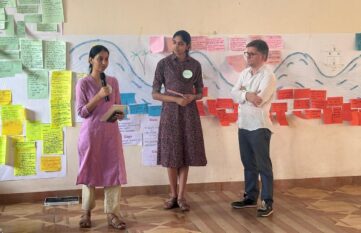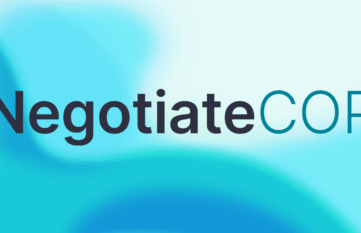How digital innovation can reduce CO-2 emissions and improve citizens-engagement for more resilient cities

The urgent need to take action against climate change in cities
Climate change is one of the greatest global challenges of our time. The current unsustainable use of the Earth’s natural resources is causing tremendous harm to people’s livelihoods. Infrastructure destruction, droughts and rising sea levels are just some of them. Moreover, it has a significant negative impact on the global economy. To reach the Paris Agreement targets, digital innovations are critical to develop solutions that support all actors in society including industry, SMEs, start-ups, the public sector, cities and citizens to reduce greenhouse gas emissions and move towards a carbon neutral economy and society.
Digital innovation to accelerate climate resilience in cities
The world is becoming increasingly urbanized. Since 2007, more than half of the world’s population has been living in cities, and that share is projected to rise to 60 per cent by 2030. Cities and metropolitan areas are powerhouses of economic growth – contributing about 80 per cent of global GDP. However, they also account for about 75 per cent of global carbon emissions and over 60 per cent of resource use2. Rapid urbanization is resulting in a growing number of slum dwellers, inadequate and overburdened infrastructure and services worsening air pollution and unplanned urban sprawl.
Digital innovations, be it low- or high-tech, such as artificial intelligence, Internet of Things (IoT) and blockchain provide unprecedented opportunities to address urban challenges. When applied to sectors such as energy, urban transport, construction or housing they can support the urban transition towards reaching the Sustainable Development Goals. Digital technologies can address some of the most pressing urban challenges by combining them with social-ecological innovation to scale up their impact processes. Through an open innovation programme, the BMZ digilab has been able to scout such digital game-changers for more climate resilient cities.
Digital technologies play a great role in making cities more resilient. E.g. smart transportation grids or traffic guidance systems help reducing CO2 emissions. Digitally regulated green facades will be the future in building design both in adapting and mitigation. Energy consumption management on a demand-base and the creation of incentives for users to time the use of electricity has already increased the efficiency of energy use in cities such as Zurich.
Digital tools for disaster risk management
Similarly, digital instruments play an increasing role for disaster risk management (DRM). Early warning systems, smart infrastructure, e.g. for storm water drainage, or the use of AI in trend monitoring and anomaly detection, have been developed over the last years, addressing both disaster preparedness as well as disaster response.
Cities are complex systems that are highly vulnerable to disaster risks, however not all urban areas or citizens are equally exposed to threads. Unfortunately, there is a correlation between the socio-economic realities of urban dwellers and their vulnerability, e.g. informal settlements lying in flood prone areas, or shelters erected with less durable materials in Hurricane zones etc. Moreover, such urban dwellers are usually concentrated in the cities with the least financial and technical resources to address disaster risk and impact.
This poses two challenges: on the one side, city governments need to pay particular attention to city resilience in already neglected areas. On the other, they must find instruments that allow them to, based on the resources they have available, take action to respond to disaster risks, and, as importantly, simultaneously engage with citizens for better preparation and response in the future.
A digital disaster management tool supported by BMZ digilab
We want to have a closer look at one winner of an open innovation programme that ended in April this year: Innovate2030. The programme was implemented together with the Make-IT Alliance and challenge-providers from different sectors like UNFCCC, Bosch, Atos, Ministry of ICT & Innovation in Ruanda as well as the municipality of Portoviejo (an Ecuadorian city).
7 tracks led to 7 different solutions whereof one is a disaster risk management tool: ACCTION. It is a web- and mobile-based tool that allows cities and citizens to work together in preparing for, responding to and recovering from disasters and crises. Actions can be developed and implemented in a matter of weeks, with little need for external assistance. ACCTION provides a simple and structured way for people to use their own knowledge through a step-by-step process in order to:
- Understand the risks the cities face, be it natural or man-made
- Define concrete measures to act against these risks
- Implement these actions immediately
- Disseminate and collect crucial information to and from citizens
To reach these goals the tool needs to:
- Map critical infrastructure and services, identify risk areas and calculate risk levels
- Send and receive warnings to and from citizens
- Coordinate immediate response and recovery
Using a low-tech approach and building upon well established DRM frameworks, ACCTION solves both problems posed above. First, by allowing a much larger number of cities, in particular the least resourced ones, to evaluate and promptly act on the risks they face, greatly minimising the need for engaging external actors (e.g., consultancy firms) in rather resource intensive processes as currently it is the case (mitigation). Second, by promoting a much deeper level of citizen engagement, aiming at leaving no-one behind, supporting efforts in the communication with the most vulnerable communities during times of crisis6.
The tool has been used so far in 5 countries (Ecuador, Cabo Verde, Honduras, Argentina, Brazil) with more than 100 active users and 500+ data sets inserted.
With the help of BMZ digilab’s innovation programme we could not only scout this digital innovation invented by the two friends Evandro Holz from Brazil and Mariano Rossi from Argentina, founders of the German-based start-up. We could also connect them with partners that are interested in implementing the solution in the context of development cooperation – and thus to scale their impact. The tool will be adjusted and implemented in one other BMZ partner country with the local GIZ country structures. In order to successfully do this, BMZ digilab will be part of this journey through co-creating together with all involved stakeholder a solid scaling strategy (our Scaling Lab).
Another important aspect in scaling impact of a digital solution is partner outreach on a global scale that goes beyond German development cooperation. This will happen 17 November 2022 as a side-event at COP27 hosted by the UNFCCC Global Innovation Hub, one challenge provider of the BMZ digilab innovation programme, which groups municipalities as part of their network activities.
Stay tuned here to sign up for the presentation of ACCTION as a tool for DRM that uses real time citizen data to meet the needs of the ones involved.


